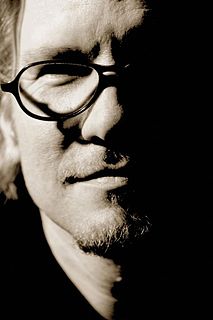
From Here to Eternity: Live is a live album by English punk rock band The Clash. It was released on 4 October 1999 through Epic Records. The songs were recorded at different shows. Some of the recordings featured also appear in the film Rude Boy. "London's Burning", "What's My Name" and "I Fought the Law" were instrumentally overdubbed to repair some technical deficiencies of the original live recording.
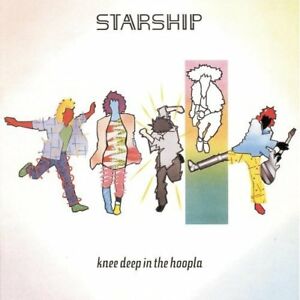
Knee Deep in the Hoopla is the 1985 debut album by Starship, the successor band to Jefferson Starship. It was certified platinum by the RIAA, and is best remembered for spawning the No. 1 hits "We Built This City" and "Sara"; the album's title comes from a lyric of the former.

Come from Heaven is the debut studio album by Alpha. It was released on Massive Attack's record label, Melankolic, in 1997. It includes vocal contributions from Martin Barnard, Wendy Stubbs, and Helen White. "Sometime Later" peaked at number 91 on the UK Singles Chart.

Gallery of Suicide is the sixth studio album by American death metal band Cannibal Corpse. It was released in 1998 through Metal Blade Records. It is also the first Cannibal Corpse album to feature former Nevermore guitarist Pat O'Brien.

Gore Obsessed is the eighth studio album by American death metal band Cannibal Corpse released in 2002 through Metal Blade Records.

Third Day is the reissue of the debut album from the Christian rock band of the same name. It was released in early 1996 after the band signed with Reunion Records.

Perseverance is the second studio release and the major-label debut by the American metalcore band Hatebreed. It was released in 2002 by Universal Records. "I Will Be Heard" is featured in the movie xXx and on its soundtrack. It is the band's last album to feature Lou Richards on lead guitar before his departure in 2002 and suicide in 2006.

Natural Wonder is a live album by American musician Stevie Wonder, released in 1995 and recorded in Osaka, Japan. It is an edited version of a televised concert Wonder performed with the Tokyo Philharmonic Orchestra. It is his fourth live album after Recorded Live: The 12 Year Old Genius (1963), Stevie Wonder Live (1970), and Live at the Talk of the Town.
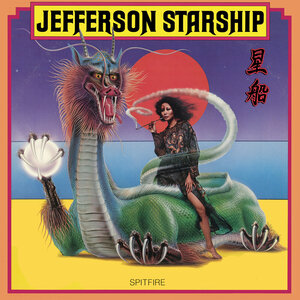
Spitfire is the third album by the rock band Jefferson Starship. Released in 1976, a year after the chart-topping Red Octopus, it quickly scaled the charts, peaking for six consecutive weeks at #3 in Billboard and attaining a RIAA platinum certification. The album features writing contributions from members of singer Marty Balin's former band Bodacious DF, as well as Jesse Barish, who became one of Balin's frequent collaborators. Stereo and quadraphonic mixes of the album were released. "Song to the Sun" was included in the 1977 Laserock program.

Winds of Change is the seventh album by Jefferson Starship and was released in 1982. It was the first studio album produced after Grace Slick rejoined the band as a full member. Aynsley Dunbar plays drums on the album, but was replaced by Donny Baldwin for the supporting tour. The album reached number 26 on the Billboard charts.
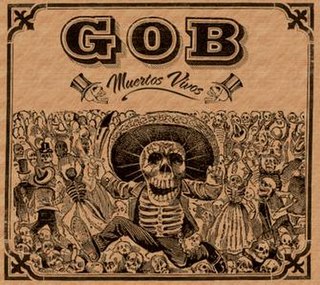
Muertos Vivos is Gob's fifth studio album. It was released October 23, 2007 in Canada, November 27, 2007 in the United States and December 5, 2007 in Japan. It is the only album featuring bassist Tyson Maiko, who left the band in 2008.

Fever In Fever Out is the second studio album by American alternative rock band Luscious Jackson. It was released on October 29, 1996 on Grand Royal and Capitol Records.
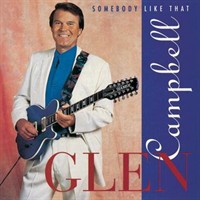
Somebody Like That is the fifty-first album by American singer/guitarist Glen Campbell, released in 1993.

Future Primitive is the debut album of Paul Haslinger, released on October 25, 1994, through Wildcat Recording Corporation.
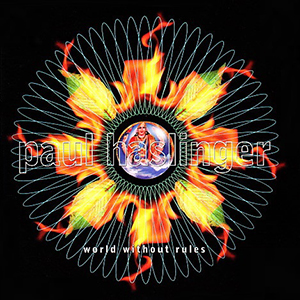
World Without Rules is the second album by Paul Haslinger, released on August 20, 1996 through RGB Records.

Hidden is the third album by Paul Haslinger, released in 1996 through Side Effects.
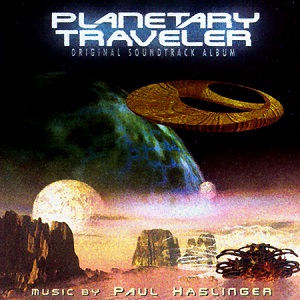
Planetary Traveler is a soundtrack album by Paul Haslinger, for a film of the same name, released in 1998 through Third Planet Entertainment.
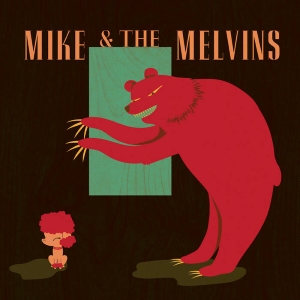
Three Men and a Baby is a collaborative studio album by Mike Kunka and the Melvins released on April 1, 2016 through Sub Pop. The album was mostly recorded in 1999 by Tim Green, but further production was delayed for over a decade. The album was finished in 2015 with longtime Melvins associate Toshi Kasai engineering and mixing.

Mad Love the Prequel is a collection of songs by Jamaican singer Sean Paul. It is supported by the singles "No Lie", "Tek Weh Yuh Heart", "Body", "Mad Love", "Tip Pon It" and "Naked Truth", and was released by SJP Productions and Island Records on 29 June 2018. The collection features guest appearances from Jhené Aiko, Ellie Goulding, David Guetta, Becky G, Major Lazer, Stefflon Don, Migos, Tory Lanez, and Dua Lipa.

